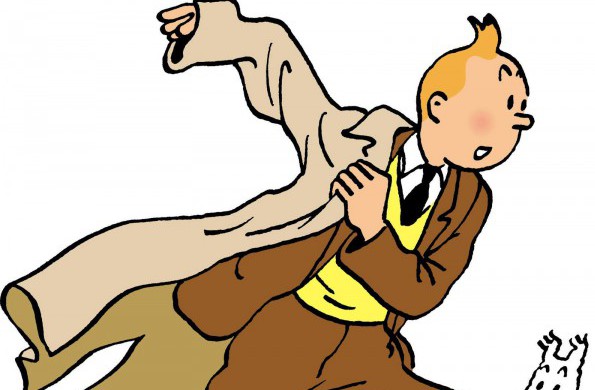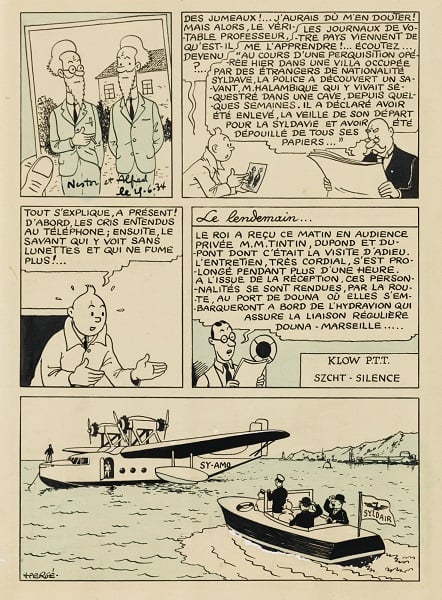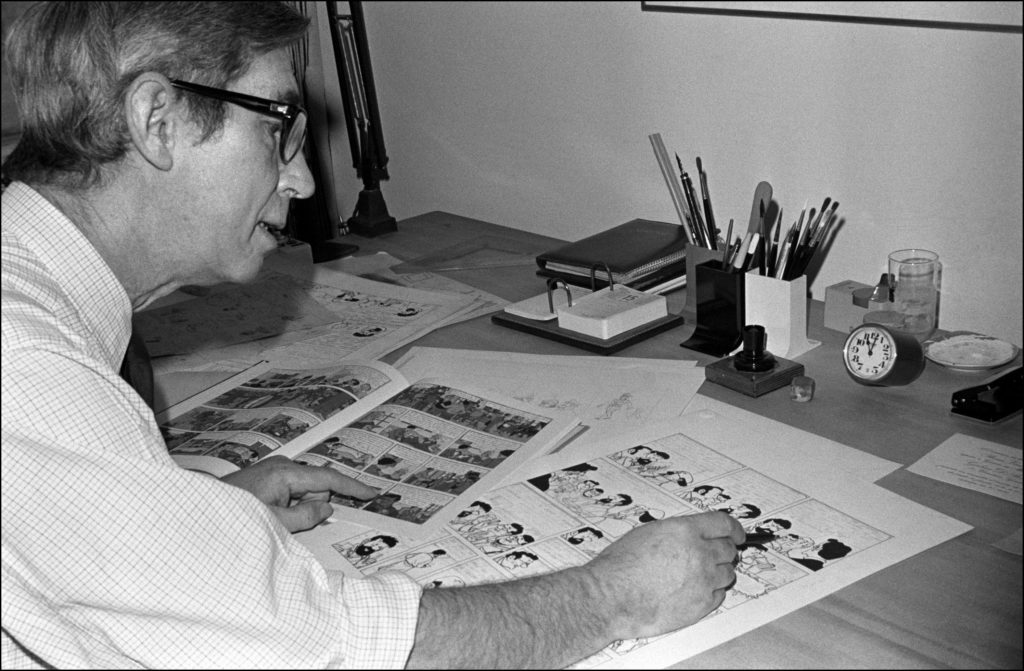Art World
Publisher Strips Hergé’s Heirs of Millions of Dollars in Rights to Tintin Drawings
The heirs have been bullishly protecting a copyright they don't own.

The heirs have been bullishly protecting a copyright they don't own.

Sarah Cascone

The heirs of Hergé, the creator of the popular Tintin comics, were dealt a crushing blow in Dutch court this week. In a shocking decision, the court ruled that they do not have the rights to the iconic boy reporter character.
The ruling hinged on the unexpected production of a long-lost 1942 document in which Hergé, whose real name was Georges Remi, transferred the Tintin rights to his publisher, Casterman.
The Adventures of Tintin debuted in a Belgian newspaper in 1929, and ran until 1976.
Since Hergé’s death in 1983, his heirs have exerted tight control over any reproduction of Tintin artwork. Original Tintin illustrations have been known to fetch over $3 million.
The family’s Belgium-based company, Moulinsart SA, does a brisk business selling souvenirs and merchandise based on the series, and is reportedly extremely aggressive in its legal pursuit of anyone it believes is violating the Tintin copyright. The company is currently run by Nick Rodwell, husband to Hergé’s second wife, Fanny.

Hergé, Le Sceptre D’ottokar (1939) sold for €327,000 ($359,795) at auction.
Photo: courtesy of Sotheby’s Paris.
“Moulinsart is relentless in the protection of the Tintin copyrights even to the point of discouraging academic study of the Tintin books,” noted Bart Beaty, a professor of comics at the University of Calgary, in speaking to the Comics Reporter. He described Rodwell as “one of the most disliked people in European comics amongst fans.”
Now, it would appear that Rodwell’s despotic reign over the Tintin empire could soon come to an end.
The current legal battle began in 2012, when Moulinsart SA sued the Hergé Society, a small Dutch fan group founded in 1999, for illustrating its Duizend Bommen publication, published three times a year and available only to Society members, with Hergé’s original Tintin illustrations.

Herge,creator of Tintin at his desk in his studio during 1975 in Brussels,Belgium. Photo by Dannau Wim/Gamma-Rapho via Getty Images.
The case was expected to revolve around fair use issues, until the Society’s lawyers played their trump card: the 1942 publishing contract, unearthed by a Hergé expert who requested to remain anonymous. Neither the Rodwells nor the Moulinsart company have been said to have contested the document’s authenticity.
“It appears, from a 1942 document… that Hergé gave publishing rights for the books of the adventures of Tintin to publisher Casterman so Moulinsart is not the one to decide who can use material from the books,” read the Hague court’s ruling.
“This is a legal decision that comes almost completely out of left field with absolutely no warning,” added Beaty. “The surprise piece of evidence—straight out of a 1940s courtroom melodrama—was not something that was on the radar. The ownership of Tintin was not something that I think many people thought was in question.”
The fallout from the ruling is certain to have big consequences in the Tintin world over the coming years. “The big question is to know whether they [other fanclubs] have to continue paying Moulinsart,” Hergé Society secretary Stijn Verbeek told AFP.